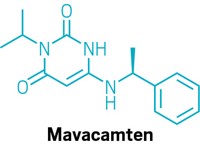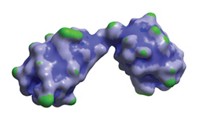Advertisement
Grab your lab coat. Let's get started
Welcome!
Welcome!
Create an account below to get 6 C&EN articles per month, receive newsletters and more - all free.
It seems this is your first time logging in online. Please enter the following information to continue.
As an ACS member you automatically get access to this site. All we need is few more details to create your reading experience.
Not you? Sign in with a different account.
Not you? Sign in with a different account.
ERROR 1
ERROR 1
ERROR 2
ERROR 2
ERROR 2
ERROR 2
ERROR 2
Password and Confirm password must match.
If you have an ACS member number, please enter it here so we can link this account to your membership. (optional)
ERROR 2
ACS values your privacy. By submitting your information, you are gaining access to C&EN and subscribing to our weekly newsletter. We use the information you provide to make your reading experience better, and we will never sell your data to third party members.
Business
Sanofi to boost rare blood disease pipeline with Ablynx acquisition
Sanofi will purchase the Belgian biologics company for $4.8 billion
by Ryan Cross
January 29, 2018

The French pharma giant Sanofi announced this morning that it will buy the Belgium-based antibody drug developer Ablynx for $4.8 billion in cash. The deal will further bolster Sanofi’s rare blood disease portfolio and pipeline and gives it access to Ablynx’s small-sized antibodies, called nanobodies.
In striking a deal for Ablynx, Sanofi outbid the Danish drug company Novo Nordisk, which offered $3.1 billion for Ablynx two weeks ago. Ablynx opted to wait for a better offer and got it from Sanofi. Novo’s chief financial officer, Jesper Brandgaard, told Reuters that he could not justify paying Sanofi’s 50% higher price.
For Sanofi, the deal is the second in two weeks for a company involved in blood diseases. On Jan. 22, the French firm said it would spend $11.6 billion to acquire the rare blood disease company Bioverativ, which is Biogen’s former hemophilia business.
In a conference call with investors about the latest acquisition, Sanofi emphasized that the long-term value lies in Ablynx’s nanobody technology. Normal antibodies are composed of two main segments, a heavy chain and light chain. Nanobodies are heavy-chain-only antibodies that are derived from camels and llamas. The end result is a smaller-than-normal antibody drug that can be delivered more easily.
The Ablynx compound most likely to be approved first is caplacizumab, a nanobody for a rare autoimmune blood clotting disorder called acquired thrombotic thrombocytopenic purpura (aTTP). Caplacizumab blocks Von Willebrand factor, a blood-clotting glycoprotein that strings platelets together.
In people with aTTP, an enzyme that normally chops up Von Willebrand factor is inactive. As a result, platelet clumping can run out of control and cause deadly clots. Paradoxically, these people are also at risk for excessive bleeding because the body uses up its platelets quickly.
In a Phase III clinical study of people with the disease, caplacizumab improved platelet levels, lowered risk of aTTP-related death or recurrence, and may have protected against organ damage.
European drug authorities will review the drug this year, and Ablynx expects sales to begin by the end of 2018. The drug will be submitted to the U.S. Food & Drug Administration later this year.
A report by the investment firm Jefferies calls caplacizumab “a potential game-changer” for aTPP. Given the estimated 7,500 cases of aTPP in North America, Europe, and Japan each year, Ablynx says annual sales of the drug could reach nearly $1.5 billion.
Ablynx’s second main program is an inhalable nanobody that targets respiratory syncytial virus (RSV). Results from a Phase IIb study of an anti-RSV nanobody are expected in the second half of 2018. Ablynx anticipates sales could be $1.2 billion annually.
Ablynx was founded in 2001 and went public in Europe in 2007. Eight of the firm’s nanobodies, including caplacizumab, are in clinical trials, and it has over 30 active collaborations with firms such as Abbvie, Boehringer Ingelheim, Merck & Co., Novartis, and Novo.




Join the conversation
Contact the reporter
Submit a Letter to the Editor for publication
Engage with us on Twitter